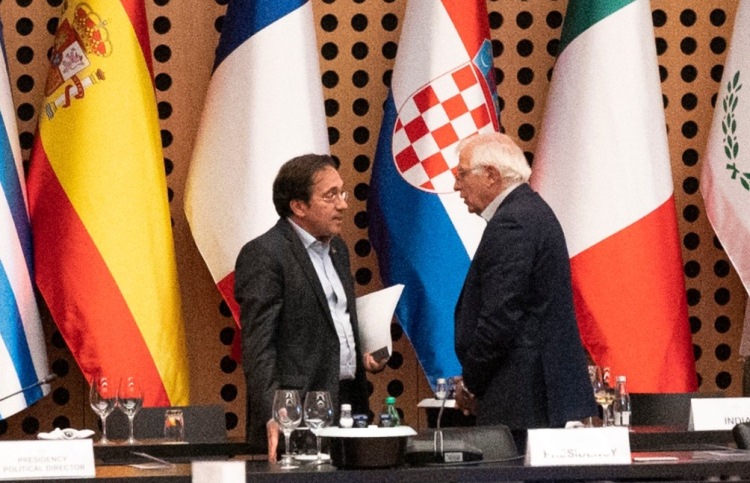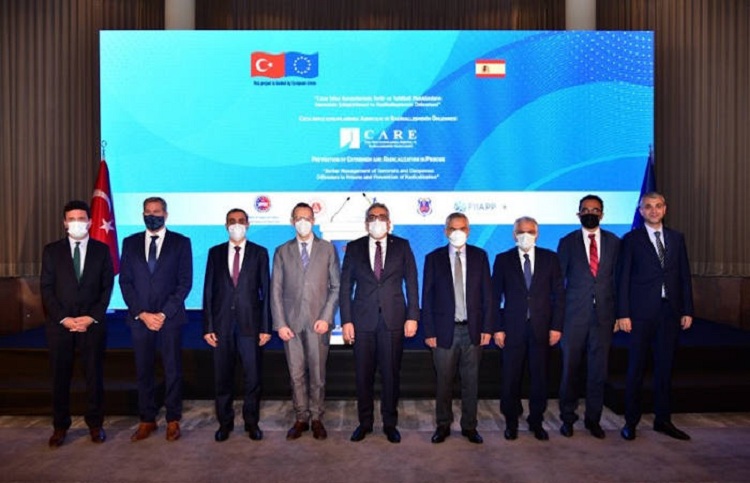The Diplomat
Foreign Minister Jose Manuel Albares met yesterday in Slovenia with his counterparts from France, Jean-Yves Le Drian, and Germany, Heiko Maas, to discuss the joint EU response to the crisis in Afghanistan following the entry of the Taliban into Kabul.
“Earlier today, in the margins of the EU ministers’ meeting, I had a working breakfast with my colleague from Germany, Heiko Maas. We have coordinated key positions for our action in Afghanistan and the region,” Albares stated via his Twitter account. “Fruitful and extensive working meeting with French Minister Jean-Yves Le Drian and our teams to continue defending the interests of our countries and the European Union, all over the world, including Afghanistan,” he said in a later message.
During these meetings, the ministers of the three countries showed “complete agreement” on the Afghan crisis, as did the other European ministers, with whom “a consensus has practically been reached here in Slovenia”, the minister later explained to the Efe news agency. This same “harmony of ideas” was also appreciated during his interview on Thursday with the US Secretary of State, Anthony Blinken, to discuss the plans for humanitarian aid to Afghanistan, an interview in which “there was a lot of cordiality”, he assured the same news agency.
The bilateral meetings with Le Drian and Maas took place on the margins of the two-day informal meeting of EU foreign ministers (Gymnich), held in the Slovenian town of Kranj, which was the first face-to-face meeting of the minister with his European colleagues since he took office.
At the end of the meeting, EU High Representative for Foreign and Security Policy Josep Borrell told the press that the heads of diplomacy of the European states had agreed on a number of conditions for accepting dialogue with the Taliban. “The Taliban are facing a shortage of liquidity, not only to pay salaries, but to pay for anything”, and, for this reason, the EU is ready to “help with conditions”, declared the former Spanish minister, following the decision of the World Bank, the Monetary Fund and the EU itself to freeze disbursements to the new regime, including development aid.
Therefore, and in order to “help the people of Afghanistan,” the EU will have “to deal with the government of Afghanistan, which does not mean recognition,” he continued. It will be, he warned, “an operational contact that will increase depending on its behavior” and that will depend, among other conditions, on Afghanistan not becoming a “haven for terrorists” and on the new regime “respecting human rights, especially those of women, the rule of law and freedom of the press”, that a new “inclusive and representative” transitional government is formed as a result of a “negotiation between political forces” and that “humanitarian aid is allowed to enter” in accordance with EU “procedures and conditions”.
According to Borrell, the EU is willing to negotiate with the Taliban from an “operational” point of view to address “important issues”, especially the evacuation of “hundreds or thousands of people that we would have liked to evacuate by air”. To that end, he said, the Union could establish “a joint presence” in Kabul which will be “coordinated by the European External Action Service (EEAS)” and which should not be interpreted as “the first step towards recognition”. “Member States are not going to reopen embassies tomorrow, we are not going to reopen a delegation with a head of delegation as if nothing had happened,” warned Borrell. In this regard, José Manuel Albares told the Efe news agency that “we would not be talking about an embassy”, but rather an “office”.







